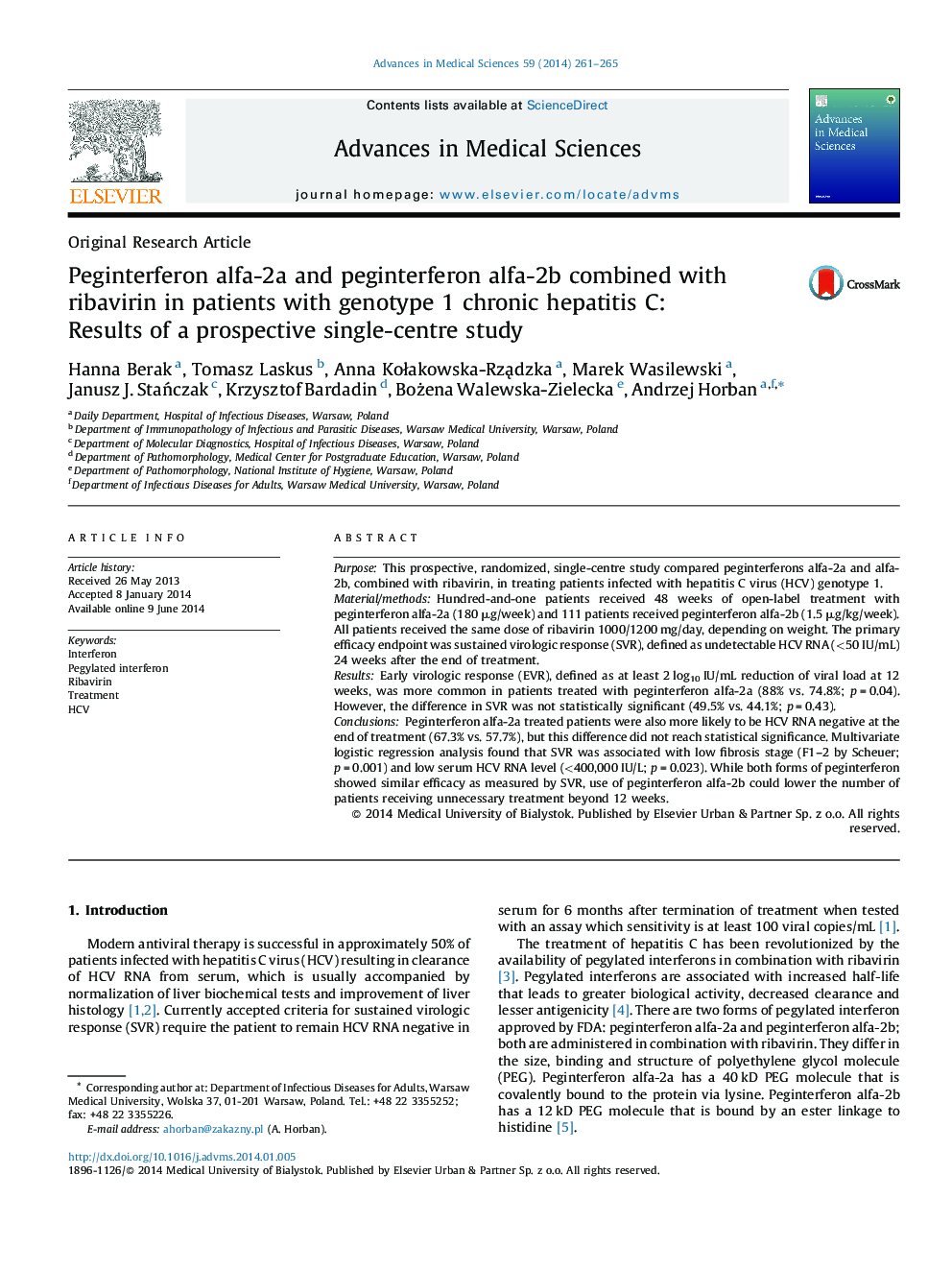| Article ID | Journal | Published Year | Pages | File Type |
|---|---|---|---|---|
| 2032123 | Advances in Medical Sciences | 2014 | 5 Pages |
PurposeThis prospective, randomized, single-centre study compared peginterferons alfa-2a and alfa-2b, combined with ribavirin, in treating patients infected with hepatitis C virus (HCV) genotype 1.Material/methodsHundred-and-one patients received 48 weeks of open-label treatment with peginterferon alfa-2a (180 μg/week) and 111 patients received peginterferon alfa-2b (1.5 μg/kg/week). All patients received the same dose of ribavirin 1000/1200 mg/day, depending on weight. The primary efficacy endpoint was sustained virologic response (SVR), defined as undetectable HCV RNA (<50 IU/mL) 24 weeks after the end of treatment.ResultsEarly virologic response (EVR), defined as at least 2 log10 IU/mL reduction of viral load at 12 weeks, was more common in patients treated with peginterferon alfa-2a (88% vs. 74.8%; p = 0.04). However, the difference in SVR was not statistically significant (49.5% vs. 44.1%; p = 0.43).ConclusionsPeginterferon alfa-2a treated patients were also more likely to be HCV RNA negative at the end of treatment (67.3% vs. 57.7%), but this difference did not reach statistical significance. Multivariate logistic regression analysis found that SVR was associated with low fibrosis stage (F1–2 by Scheuer; p = 0.001) and low serum HCV RNA level (<400,000 IU/L; p = 0.023). While both forms of peginterferon showed similar efficacy as measured by SVR, use of peginterferon alfa-2b could lower the number of patients receiving unnecessary treatment beyond 12 weeks.
